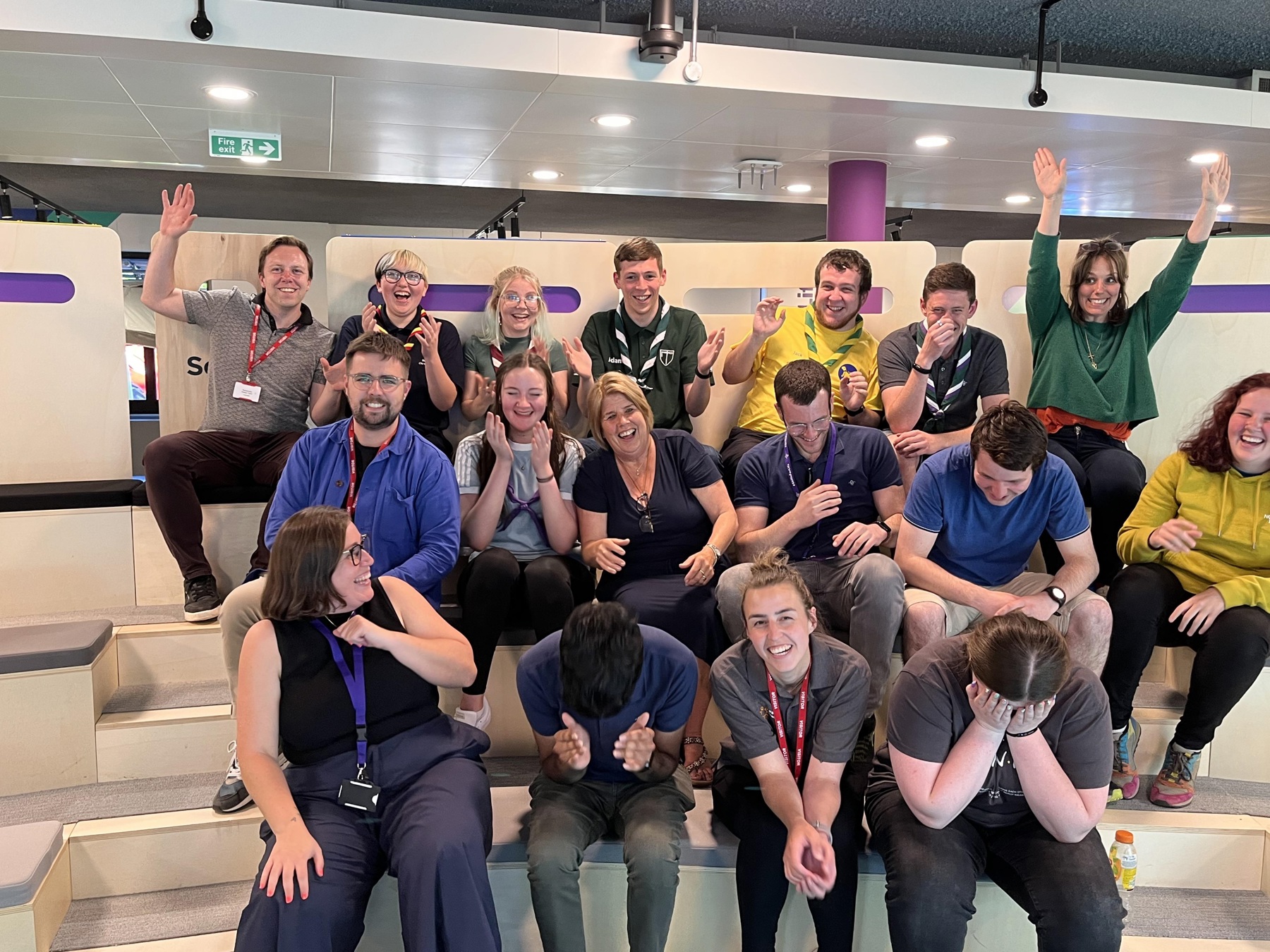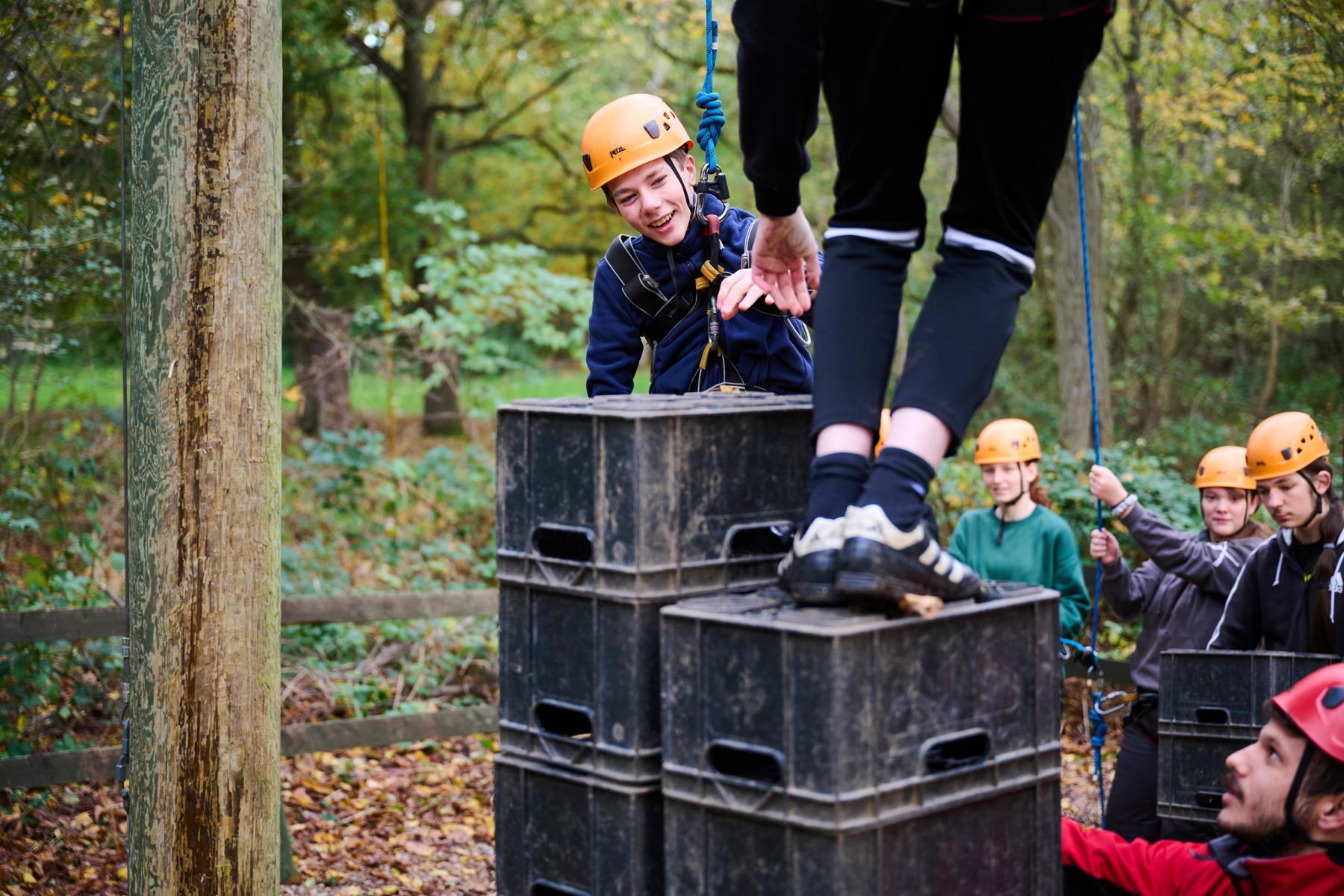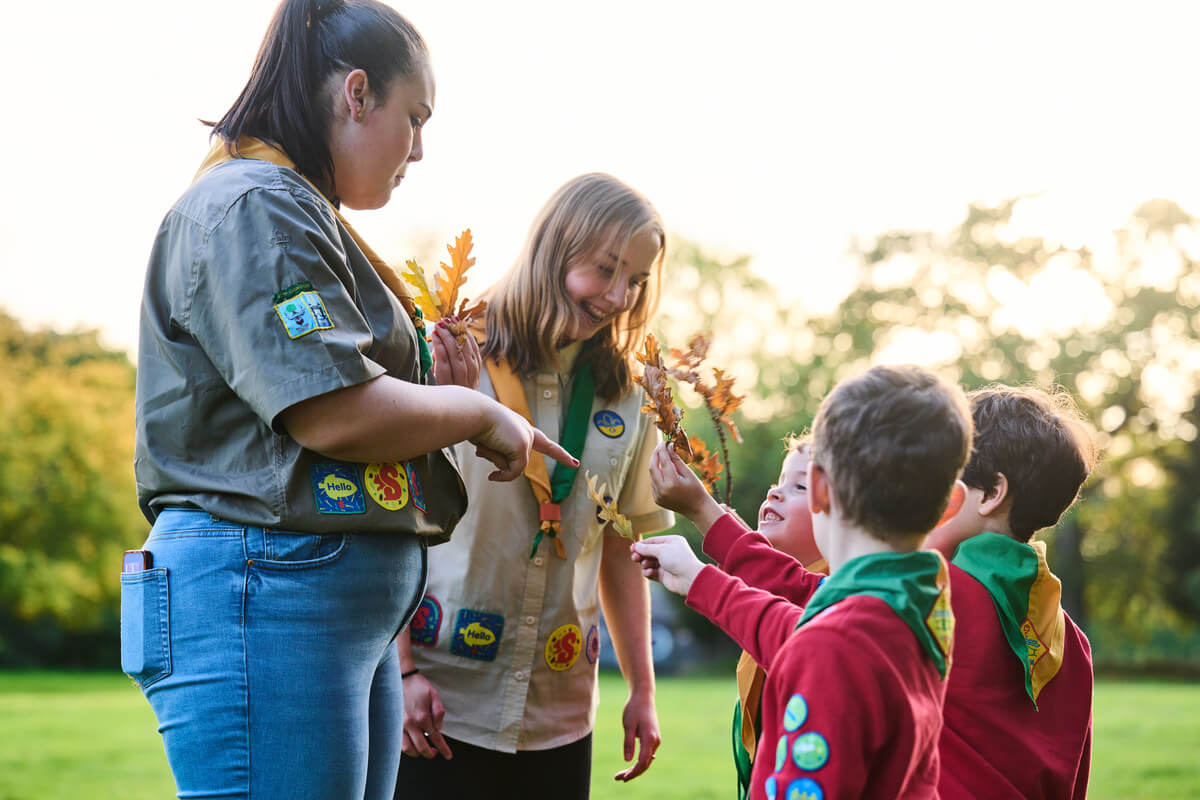14-24 redesign: what we’ve learned so far
We've been doing research into the past, present and future of Explorers and Network to aid us in crafting a fresh programme that better suits the needs of young people. After looking back at our history, engaging with the movement across the UK, and learning from National Scout Organisations across the world, find out what we've learnt so far.

Why we’re looking into a redesign
We want young people to have the best shot at life – to be ready for the job interview, the important speech, the tricky challenge and the big dreams.
We've got plenty to be proud of. Since we introduced Explorer Scouts and Scout Network, our numbers have been going up year after year, except for during the Covid-19 pandemic.
Back in 2019, a whopping 76% of young people thought our Section Leader volunteers were giving them an amazing experience.
But, we know we can do even better. Lots of Scouts aren't moving up to Explorers and a lot of Explorer Scouts don't continue on to Network.
That's why we've been taking a hard look at what we offer to 14-24 year olds. So, six months into our research, what have we learned?
Where it all started
We started by looking into the background and history of our work for older Scouts. Going from Rover Scouts to Venture Scouts before becoming Explorers and Network, which were introduced in 2002.
The original vision was to be different to, but to build on the strengths of, Venture Scouts. The aim was to be linked to external awards, such as Duke of Edinburgh, but to remain faithful to our values. It aimed to offer choice to young people, as well as being flexible and adaptable to local needs and concerns.
Our research looked into how the vision played out in reality. It found how Explorers and Networks were meeting its original vision, as well as how it could be considered to be developed. You can find all the details in our report.
Talking to those currently in Explorers and Networks
We've spoken to Explorer volunteers and Network members in online workshops. We then started to identify some common themes from those too:
- There's lots of variation in the way Explorers is structured and delivered. Units with strong links to Scout groups and their District often thrive, while those with poorer links and support often struggle more.
- The main barriers affecting Explorer groups are the lack of volunteers and lack of Explorers, due to Scouts not progressing, being held onto by leaders or because the programme doesn't feel relevant to them any more.
- The lack of clear purpose, structure and self-led nature of Network makes it quite vague in what it actually is, resulting in an awareness issue and a pressure on District Scout Network Commissioners (DSNCs) to organise events.
Learning from National Scout Organisations across the world
We were lucky enough to brief UK Scout Network attendees at the European Youth Agora. This gave us the chance to talk to young people from other National Scouting Organisations (NSO’s) about their motivations, challenges, successes and perceptions.
We combined this with a workshop we delivered with Scout Adventures international volunteers to give us some great insights from 17 different National Scouting Organisations, including:
- There are common motivations across different NSO's, including being part of the Scouts community, having positive experiences in nature, and giving something back to Scouts and their local communities.
- Challenges to participation and growth include competing interests and a lack of maintained motivation, difficulty championing youth voices and values through older members, and a lack of enough members at local levels.

Young Leaders’ Scheme
We developed a survey on the Young Leaders’ Scheme and received over 700 responses from across the UK. We found that:
- 84% agree that the Young Leaders’ Scheme effectively prepares young people to become adult volunteers in Scouts.
- 84% agree that the Young Leaders’ Scheme effectively develops leadership skills for use in community, work or personal life.
- 43% agree and 40% disagree that there’s enough support available to Young Leaders undertaking the training scheme.
The survey also highlighted some challenges, including that there’s variation in availability and delivery of the Young Leaders’ scheme across Counties and Districts. Some also said there’s room for improvement between the Young Leaders training and the adult volunteer training.
What’s next?
We’ve still got plenty more research to do as we continue looking into to find out the best way to support and serve young people in these sections.
We want to develop a programme that engages young people who we aren’t currently reaching.
Our Youth Panel is in the middle of looking at surveys from 622 young people who aren’t in Scouts to find out what things they need from extra-curricular activities, as well as what they think about Scouts.
We’re going to continue to engage with the worldwide Scout network, including having online workshops with 19 different National Scout Organisations.
Our Youth Panel is planning to observe Network and Explorer groups in 31 counties across the UK.
We’re also developing self-led workshop activities to be run by our volunteers. The workshops aim to find out exactly what our current youth members want, need and prioritise in Scouts and will help us shape the future.
Opportunities to get involved
There are lots of ways you can continue to be involved in our 14-24 redesign work. You can help us to design the future for Explorers and Network. Come and join in!
You can:
